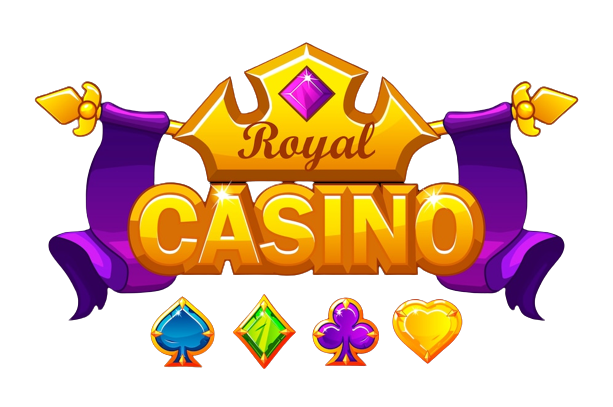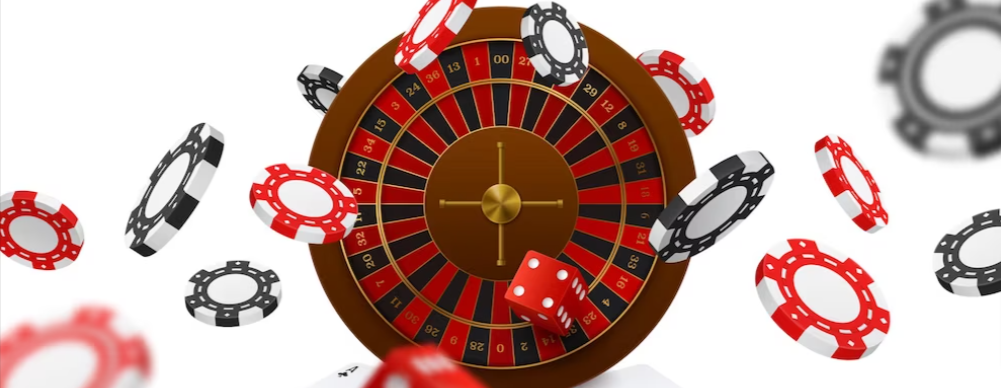The Paradox of the Perfect Exit
Ask any casual or seasoned player what the smartest move is after a win, and most will say: “Quit while you’re ahead.” Yet in practice, stopping when the balance finally turns green can feel strangely uncomfortable – like closing a book two pages before the best chapter. A sudden win opens possibility: What if the next spin pushes it higher? What if this is my lucky streak? That tension between rational advice and emotional momentum explains why many players hesitate at the very moment that looks, from the outside, like the perfect exit. Whether you play at home, on your phone, or on a platform you first encountered through Casinoly καζίνο, the psychology is the same: winning changes the math, but it also changes the mind.
This article maps the fear of stopping on a win from unusual angles – dopamine rhythms and identity scripts, the dramaturgy of user interfaces, social proof from live streams, moral accounting, and the odd little narratives we tell ourselves to justify “just one more.” We’ll finish with a field-tested toolkit to restore clean endings: rituals, rules, and small design choices that turn a fragile moment into a confident exit.
The “After-Win Anxiety” Nobody Talks About
Ending on a win should feel triumphant, yet players often report a subtle anxiety. Here’s what it sounds like:
- Future Regret Fear: “If I stop now, I’ll miss the real hit that was just around the corner.”
- Ownership Ambivalence: “Do I really deserve this? Maybe I should ‘prove’ the win by playing a bit more.”
- Narrative Incompleteness: “That escalated quickly – my story isn’t finished.”
- Momentum Magnet: “Everything is clicking; why freeze now?”
Underneath those lines is the same engine: uncertainty spiking attention and imagination. Ending the session closes uncertainty; continuing keeps it alive. The brain often prefers open suspense to closed certainty – even when certainty is favorable.
Dopamine, Anticipation, and Why Ending Feels “Flat”
A crucial (and counterintuitive) fact: dopamine peaks before the outcome, not after it. It’s anticipation – not possession – that excites the reward system. A win gives you money and relief, but it also removes the uncertainty that fueled your focus. Stopping right after a win ends the anticipatory high; playing “one more” restores it instantly. In that biochemical sense, continuing is a return to the best part of the ride.
Implication: If you rely on anticipation for your fun, ending on a win can feel emotionally quieter than a new roll of the dice. That doesn’t make it irrational to stop; it makes the stop feel less “juicy.” The fix is to add meaning and ceremony to the ending so your nervous system reads it as a peak, too.
Reference Points and the Elastic Target Problem
Behavioral economics shows that outcomes are judged against reference points, not in isolation. Before you started, your reference point may have been “break even” or “+€100.” The moment you hit +€100, the mind silently “resets” to a higher target – say +€200. That moving goalpost creates the fear of stopping: if the bar has risen, closing now feels like “settling.” Worse, the more volatile the session, the more slippery your reference points become.
Practical read: The target you felt moments ago (e.g., +€100) isn’t the one your brain is using now. Without pre-declared exit targets, the goal inflates faster than you can cash out.
The Sunk-Cost Mindset in Disguise
You might think sunk-cost bias only pushes people to continue when they’re down. But it also appears after a win: “I put so much time into this – why stop at the first good pop?” The effort invested raises the subjective price of ending. Your mind wants a “proper” ending that justifies the whole story. Ironically, that search for meaning can erase the very gain that could have been the perfect punctuation mark.
Narrative Closure: Why Quick Wins Feel “Premature”
Players are storytellers. We enter with arcs – try a new slot, hit one feature, double the stake, chat at a live table, call it a night. If a big win arrives “early” (or after a chaotic detour), it can feel narratively wrong: too soon, too easy, or too disconnected from the identity you intended to play (Explorer, Strategist, Socialite, Tourist). When identity and outcome don’t match, celebration stalls.
Translation: Stopping on a win doesn’t land if it doesn’t close the story you set out to live. The mind would rather chase a resolving scene than accept a favorable – but “untidy” – ending.
Moral Accounting: The Strange Guilt of Winning
Some players carry a subtle belief that “easy money” must be offset by additional effort or risk. It’s a pocket version of moral accounting: “I should earn this.” That belief can trigger self-sabotage: play longer, take bigger risks, “balance” the ledger with extra spins. The fear isn’t of stopping; it’s of being seen (by yourself) as someone who took a win “too easily.”
Better frame: Treat entertainment wins as story outcomes, not moral statements. You paid for suspense with time and attention; the win is your plot twist, not a sin to confess.
Near-Miss Theater: Why “Almost” Keeps You From “The End”
Near-misses are losses dressed as proximity. When they appear right after a win, they whisper: “You’re hot. Stay.” Their audiovisual cues – slowed reels, warm glows, musical lifts – blur the boundary between resolution and continuation. The win no longer feels like a final act; it becomes Act II.
Technique: Name it out loud: “Near-miss equals loss.” It restores categorical clarity, making the previous win the cleanest ending available.
Social Proof and Streams: Witness Makes Stopping Hard
Live streams and social tables amplify momentum. Seeing others push on after wins normalizes the extension and makes a calm exit feel anticlimactic. Spectatorship converts your ending into their cliffhanger, and now you feel responsible to continue the story. That social obligation – real or imagined – biases you away from cashing out.
Counter-move: Make the ending a social moment, too. Screenshot, share, withdraw. A witnessed exit can be as satisfying as a witnessed hit.
Interface Dramaturgy: How UI Can Dilute or Enforce Endings
Design influences endings more than most players realize:
- Frictionless “spin again” loops reward continuation and punish reflection.
- Oversized micro-celebrations flatten the impact of big wins; you keep playing to find a moment that feels proportionate.
- Credits-only displays create “phantom money” – gains feel abstract, unowned, easy to risk again.
- No natural intermissions means no “stage lights” rising to signal curtain.
Good platforms do the opposite: dual displays (credits + currency), proportionate fanfare, and gentle post-win pauses that make cashing out feel like an elegant action, not a buzzkill.
Identity Scripts: Who You Said You’d Be Tonight
Many players enter with a persona:
- Strategist: fixed stakes, pre-planned exits.
- Explorer: samples new titles, values discovery over amounts.
- Socialite: live tables for pace and banter.
- Tourist: short, mellow, a little sparkle, then done.
If you win while acting off-script (e.g., the Strategist yolo-bets, the Explorer tunnels one game), the exit feels undeserved or misaligned. The easiest way to make stopping on a win feel good is to win in character.
Temporal Distortions: The “Double-Time” Trap After a Win
Time compresses under flow. After a big hit, that compression intensifies: your focus narrows, the world shrinks, and you underestimate how long “one more” actually lasts. You fear stopping because “it will only take a second to see if the streak continues.” Seconds become segments; segments become another hour.
Answer: Add an external time anchor (a micro-timer, or a rule tied to events like “first feature after the win = stop”), not just your internal estimate.
Money Illusions: House Money, Denomination Drift, and Rounding
Three subtle money illusions keep you from ending on a win:
- House-Money Effect: Treating the gain as “the house’s,” not yours – so it’s easier to risk.
- Denomination Drift: After a hit, all numbers feel smaller; stake sizes creep up.
- Rounding Comfort: Mental rounding (“I’m at ~€300”) hides the precision that would make cashing out compelling (“€312.40 is mine now”).
Fix: Immediately allocate a portion of the win to a “vault” and watch it convert into your native currency. Ownership resets illusions.
The “Clean Ending” Problem: Endings Need Craft
Movies fade to credits. Books close their covers. Games that never end breed restlessness. If an interface never offers a graceful scene change, your nervous system resists stopping – especially after a win, when energy is high. The ending, to feel satisfying, needs ritual and frame.
Design your curtain call: a line you say (“Done”), a screenshot, a withdrawal, a favorite 20-second track, lights up, app closed. The mind learns the choreography.
Case Vignettes (Composite, Realistic)
1) The Early Pop
Amira plans a 60-minute exploration. At minute 12, she lands +€180. It feels “too early” to stop; she continues, then grinds back to +€40. She adopts a new rule: “Any win ≥ the full session budget triggers an optional ending scene.” Now, an early pop can be the story, not a warmup.
2) The Streak Hypnosis
Olek wins three small features in ten minutes. Momentum is intoxicating, and he fears freezing the streak. He builds a “two-peak” policy: After two notable peaks, the next clear high is the exit. Stopping becomes part of the streak’s logic, not a betrayal.
3) The Social Echo
Gina plays live roulette with friends spectating. After a tidy hit, the chat chants “one more!” She reframes community: she posts her cash-out screenshot; the group reacts with celebratory emojis. The room learns a new norm: endings get applause, too.
Tools to Make Ending on a Win Feel Great (and Natural)
1) Price the Story (One-Sentence Plan)
“Explorer mode, 50 minutes, €X entertainment, exit on +€Y or after the first feature post-minute 35.”
You’ve created chapters and a finale. Wins now have places to land.
2) Identity Check (Every 10–15 Minutes)
Ask: “Am I playing like the persona I chose?” If not, realign or end. Identity alignment boosts the rightness of your exit.
3) Dual Display On (Credits + Currency)
Make value concrete. When you see real euros, ownership rises – and so does the satisfaction of banking.
4) The 10-Second Win Ritual
Mute → inhale → exhale → screenshot → bank a percentage (e.g., 50%) → whisper a closing line (“That’s mine”). Ritual turns arithmetic into an event.
5) Event-Linked Exit Triggers
Tie exits to events rather than mood:
- “First feature after the win = stop.”
- “Two near-misses in a row after a win = pause and reassess.”
- “Stake increase only allowed before a new chapter, never right after a win.”
6) The Vault Rule
Immediately move a portion of any gain to a protected bucket (or withdraw). Once money crosses that boundary, the “house-money” illusion breaks.
7) Night Mode Boundaries
Shorter sessions after 22:00, lower volatility, no back-to-back sessions. Fatigue blunts joy and invites “just one more.”
Micro-Experiments You Can Try Tonight
- Grayscale Audit (2 minutes): Turn your device to grayscale and trigger a small win. Do you still feel like continuing right now? If yes, it’s momentum; if no, palette dramatization was carrying you.
- Two-Peak Rule (One session): Commit to ending on the second clearly positive spike. Notice that stopping feels like completing a pattern rather than interrupting one.
- Screenshot Ledger (One week): Every cashed-out win gets a screenshot and a one-line caption. You’ll quickly see which contexts make endings satisfying – and which steal closure.
- Near-Miss Naming (Ten events): After each near-miss post-win, say “loss.” Watch the exit urge regain clarity.
For Designers & Operators: How to Help Players End Proudly
- Proportionate Fanfare: Reserve deep golds, longer animations, and richer audio for genuine wins. Keep micro-wins modest.
- Natural Intermissions: Add soft post-win breath points: “Bank now?” “Take a moment?” Respectful, not nagging.
- Stake-Up Friction: One dignified confirmation (with a short dwell) for increases – especially right after hits.
- Dual-Economy Defaults: Credits and currency side by side; let players pin their preferred view.
- Player-Set Reality Checks: Reminders by minutes or loop counts, in the player’s own words.
Helping players end well isn’t anti-business; it builds long-term trust and loyalty.
Frequently Asked Questions
Isn’t it irrational to keep playing after a win?
It’s human. Anticipation feels rewarding, reference points shift, and design momentum is real. Recognizing those forces lets you choose – clearly – when to end.
Won’t stopping kill the fun?
Stopping at the right time preserves the best part of the story. Reframing exits as finales, not forfeitures, often makes the fun more memorable.
How big should a win be to trigger an exit?
Tie it to your plan: any win that equals your full session budget, breaks a pre-declared target, or marks the second strong peak is a great candidate.
What if I always feel I “left money on the table”?
That feeling is future-regret fear talking. Replace it with present-pride evidence: screenshot, vault, and a short note. Revisit the ledger when doubt creeps in.
A Compact Ending Playbook (Clip-and-Keep)
- One-sentence session plan (role + time + exits).
- Credits and currency visible.
- Breath + 10-second win ritual.
- Event-linked exits (feature, second peak, minute mark).
- Vault a portion instantly.
- Near-miss = loss (say it).
- Curtain call: withdraw, screenshot, note, music, app closed.
- No sequel sessions back-to-back.
Practice this twice; the third time feels natural.
Responsible Play, Always
Gambling is entertainment – not a plan for income, not a fix for stress. If you notice secrecy, chasing, borrowing to play, or sessions that routinely outlast your plan, consider time-outs, lower limits, self-exclusion tools, or professional support in your region. The best win is an exit you’re proud to remember.
Conclusion – Turning the Bravest Moment into the Best One
Stopping on a win can feel like surrendering possibility. In truth, it’s the moment of highest authorship: you chose the frame, lived the suspense, and decided the ending. Fear of stopping comes from anticipation’s chemistry, slippery reference points, social echoes, and interfaces that celebrate continuation more than completion. But endings are a craft you can learn. Write the plan, play your identity, ritualize the win, anchor the exit to events, and vault the gain. Do that, and you’ll discover that the most satisfying part of the night isn’t “just one more.” It’s the quiet confidence of a clean, well-timed curtain – an ending that feels like yours.


